Director's Corner
1 October 2009
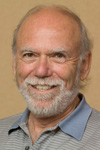 Barry Barish |
FALC meets in Quebec City
The Funding Agencies for Large Colliders (FALC) held its fifteenth meeting at Quebec City on 13 July 2009. FALC serves as the oversight committee for our Global Design Effort (GDE) on Resource Issues as well as meets to discuss more generally the status and funding prospects for large colliders. I was not able to attend this meeting due to a long-term commitment to be in Taiwan for a major review of the Institute of Physics at Academia Sinica. Mike Harrison (BNL), Regional Director for the Americas, very capably filled in for me and presented the GDE status report, while Brian Foster, European Regional Director, discussed our governance studies and GDE administrator Maxine Hronek presented our common fund report.
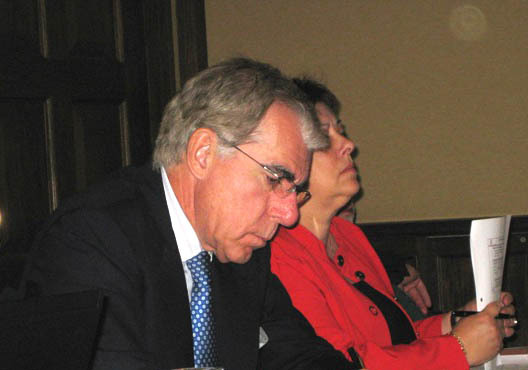 Pierre Coulomb, Chairman of FALC Pierre Coulomb, Chairman of FALC |
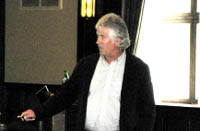 Mike Harrison presenting the GDE report to FALC Mike Harrison presenting the GDE report to FALC |
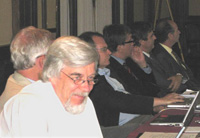 Rolf Heuer, Director-General of CERN, at the FALC meeting Rolf Heuer, Director-General of CERN, at the FALC meeting |
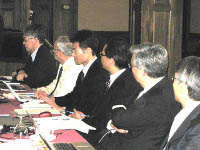 FALC members in session FALC members in session |
Mike Harrison reviewed the technical progress of the GDE for FALC. He covered a wide range of topics: the status of our R&D programme; a review of our resources; outcomes of our technical reviews by the AAP (the Accelerator Advisory Panel, our internal technical review committee) and the PAC (the Project Advisory Board, the external ILCSC appointed technical review committee); the status of the experimental programme following submission of the Letters of Intent; the problem of lack of formal laboratory commitments to supporting our programme; and the steps we have taken to form a viable collaboration between ILC and CLIC on problems of mutual interest. Mike's talk was followed by a presentation by Brian Foster on the status of our ongoing work in the GDE on governance for the ILC. Brian reviewed the results of our studies of other large projects and what conclusions we have drawn that we will apply to the development of models for ILC governance. Atsuto Suzuki, chair of ICFA, also presented ICFA/ILCSC plans for governance studies. Lastly, Maxine Hronek presented the status of our "common fund" spending for this year and our proposal for next year, which was well received. The common fund is crucial to the functioning of the GDE as it is the only direct financial support for our work, and it is coordinated by FALC, through the FALC Resource Group, chaired by Richard Wade of the UK.
In addition to the ILC reports, Torsten Akesson informed members about intensive discussions between CERN and the European Commission with a view to more formal connections between particle physics in Europe and the European Commission. He reviewed the status of the work of the CERN Council Working Group charged with examining the scientific and geographic enlargement of CERN. He said that non-member states were invited to CERN in September to discuss their positions and offer opinions about how non-member states may link into the future role of CERN for global accelerator projects and non-accelerator experiments.
Other topics discussed at the July FALC meeting included the merits of expanding the membership, role, and mandate of FALC. The role of FALC centers on exchange of information among funding agencies but it is also a useful forum to learn collectively about the status of future global projects. The definition of what constituted a global project was debated, and the LHC upgrade Super-LHC was deemed to be a good candidate for recognition as a global project.
The next meeting is scheduled to be held in Mumbai, India, in January 2010. At this meeting, we expect to focus on presenting the preliminary proposal for a new ILC baseline to be the basis of our work over the coming three years towards a technical design report. Also, because this meeting is in India it will provide us with new opportunities to further engage Indian scientists in the ILC accelerator and detector programmes.
-- Barry Barish